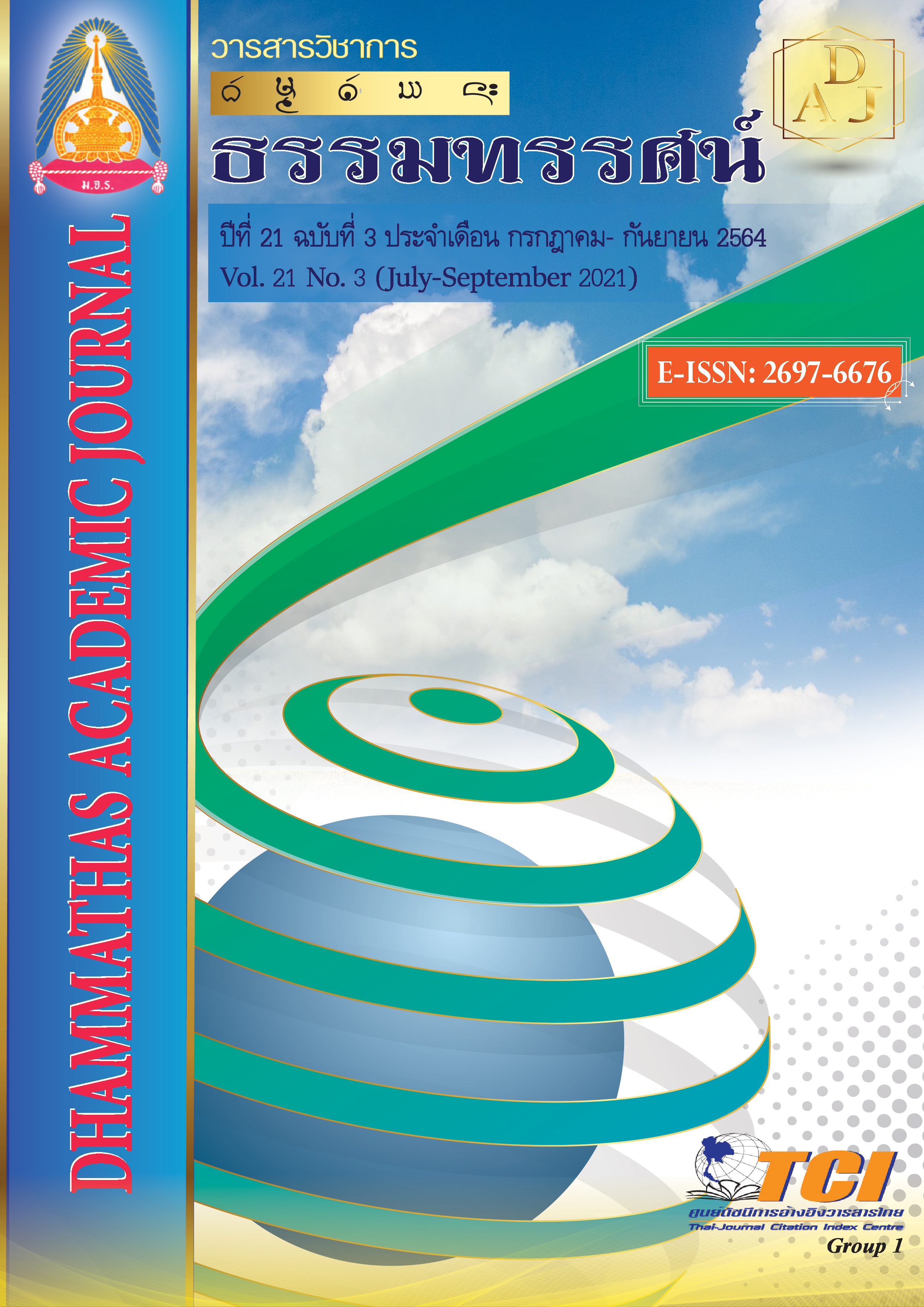The Strategies to Develop the Essential Competency for Teachers in Basic Education Schools for Education 4.0 Preparation
Main Article Content
Abstract
This study aims to: 1) study the contexts to develop the essential competency for teachers in basic education schools to prepare for education 4.0, 2) design the strategies to develop the essential competency for teachers in basic education schools to prepare for education 4.0 and 3) evaluate the strategies to develop the essential competency for teachers in basic education schools to prepare for education 4.0. This research is a qualitative research and there were 30 informants attended context study and 9 experts attended the evaluating strategy process. Research Instrument were a semi-structured interview form, content analysis form, Group Discussion Issues and a questionnaire to assess the strategy. Analyze data using the SWOT analysis technique. Analyze content and draw conclusions In addition, the basic statistical values were mean () and standard deviation (S.D.).
The research result finds that:
1. The overall of the contexts to develop the essential competency for teachers in basic education schools to prepare for education 4.0 found that the strength of the contexts was the principles of participation to develop the teachers; the weakness of the contexts was the workload besides the teacher's teaching is too much; the opportunities of the contexts was individuals, communities, organizations, government agencies and private parties, stakeholders and networks to promote, develop and participate in the operation of the school; the threats of the contexts was the changing of political situations that affect to education policy.
2. The strategies to develop the essential competency for teachers in basic education schools to prepare for education 4.0: 11 strategies, 11 measures and 11 indicators.
3. The evaluation of the propriety and the feasibility of strategies which are at a highest level.
Article Details
References
กระทรวงศึกษาธิการ, สำนักงานเลขาธิการสภาการศึกษา. (2560). แผนการศึกษาแห่งชาติ พ.ศ. 2560-2579. กรุงเทพฯ: สำนักงานเลขาธิการสภาการศึกษา.
ธารารัตน์ มาลัยเถาว์. (2560). กลยุทธ์การพัฒนาทักษะครูประถมศึกษาตามแนวคิดการเรียนรู้ด้วยการนำตนเอง สังกัดสำนักงานคณะกรรมการการศึกษาขั้นพื้นฐาน. วารสารวิจัยทางการศึกษา คณะศึกษาศาสตร์ มหาวิทยาลัยศรีนครินทรวิโรฒ, 11(2), 306-319.
นิสดารก์ เวชยานนท์. (2553). Competency-Based Approach. (พิมพ์ครั้งที่ 4). กรุงเทพฯ: เดอะกราฟิโก ซิสเต็มส์ จํากัด.
บุญชม ศรีสะอาด. (2553). วิจัยเบื้องต้น. (พิมพ์ครั้งที่ 3). กรุงเทพฯ: สุริยาสาส์น.
พรชัย เจดามาน และคณะ. (2562). การพัฒนาการศึกษาภายใต้กรอบประเทศไทย 4.0 สู่ศตวรรษที่ 21. เข้าถึงได้จาก http://oknation.nationtv.tv/blog/jedaman/2016/12/31/entry-1
พิมพันธ์ เตชะคุปต์ และพรทิพย์ แข็งขัน. (2551). สมรรถนะครูและแนวทางการพัฒนาครูในสังคมที่เปลี่ยนแปลง. กรุงเทพฯ: พริกหวานกราฟฟิค.
ไพฑูรย์ สินลารัตน์ และคณะ. (2559). การศึกษา 4.0 เป็นยิ่งกว่าการศึกษา. (พิมพ์ครั้งที่ 3). กรุงเทพฯ: วิทยาลัยครุศาสตร์ มหาวิทยาลัยธุรกิจบัณฑิต.
ไพฑูรย์ สินลารัตน์. (2559). การศึกษา 4.0 เป็นยิ่งกว่าการศึกษา. กรุงเทพฯ: จุฬาลงกรณ์มหาวิทยาลัย.
วิภาดา คุปตานนท์. (2551). การจัดการและพฤติกรรมองค์การ: เทคนิคการจัดการใหม่. กรุงเทพฯ: มหาวิทยาลัยรังสิต.
สุกัญญา รัศมีโชติ. (2551). การจัดการทรัพยากรมนุษย์ด้วย Competency-Based HRM. (พิมพ์ครั้งที่ 2). กรุงเทพฯ: สถาบันเพิ่มผลผลิตแห่งชาติ.
Ozcelik, G. and Ferman, M. (2006). Competency Approach to Human Resource Manager: Outcome and Contributions in a Turkish Cultural Context. Human Resource Development Review. Thousand Oaks: March.
Thompson, A. A. and Strickland, A. J. (2003). Strategic Management: Concepts and Cases. (12th ed.). Boston: McGraw-Hill.
Wheelen, T. L. and Hunger, J. D. (2008). Strategic Management and Business Policy. (11th ed.). New Jersey: Pearson Prentice Hall.

